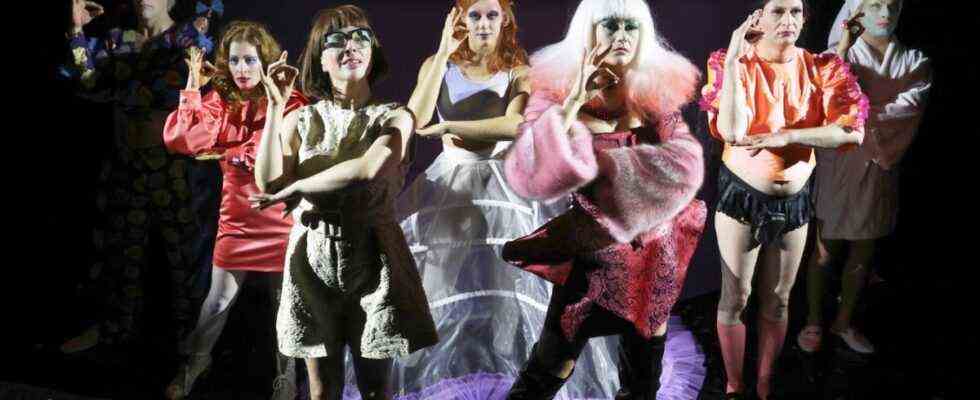When Frank Wedekind published his Faust satire “Franziska” in 1912, he was interested in a fantasy about women who live independently like men. The main character enters into a pact with the devil that she is allowed two years as a man to taste all the freedoms of the Wilhelmine era that were withheld from women. Which goes well until she gets pregnant. Ultimately, the wild piece was a Schwabing promise for the rest of the narrow-minded German nation, because in Munich, where Wedekind lived, women in the bohemian circles before the First World War could not only wear their trousers in carnival and ignore patriarchy. In the series of Wedekind’s scandalous pieces from those years such as “Lulu” (actually: “Pandora’s Box”) and “Spring Awakening”, this parody with an emancipatory message (which of course ends in the classic family idyll) was one of the less objectionable pieces.
If a director 110 years later created a new version of the material with the aim of short-circuiting Wedekind’s male feminism with issues of the female present, then one thing would definitely not be expected: a pink Barbie world full of dolls where women cannot get through Be able to open the door without bumping your head. Perhaps Pınar Karabulut read in Reclam’s actor guide that Wedekind portrayed people as “puppets of an idea”; in any case, she stages her “modern mystery” about the female Faust at the Bremen Theater as a puppet theater for people without an idea.
I’m a Barbie girl in a Barbie world: The set for the Bremen “Franziska” is a doll’s house in a box.
(Photo: Jörg Landsberg)
A collection of garishly costumed wind-up dolls that speak like characters from prehistoric computer games and move like posers from lousy TikTok videos strive for 90 minutes to show soulless plastic theater. It begins on a large pink cake with a show that looks like a Madonna concert is being re-enacted by a socialist state broadcaster. Then the lid is lifted and a perfectly enlarged doll’s house in the colorful PVC style pops up, the thing looks like one of those “Polly Pocket” cases from the toy manufacturer Mattel. In this pop-up setting for preschoolers of the 20th century, Karabulut’s speaking machines stumble around in jerky movements and with a wooden style of speech, as if the production were a workshop on foreign shame.
What does the director want to achieve? Are all people fools? Hopefully not
Perhaps a man as a reviewer cannot understand the hidden feminist messages that Karabulut with her poor acting as a system (and the leading actresses Fania Sorel, Annemaaike Bakker and Mirjam Rast) want to convey. But from the standpoint of equality from a male perspective, one can actually only note that feminism here means gender-specifically mirroring the offensive reproduction of female stupidity stereotypes with triple steps, wide-eyed eyes and affected start-up voices. The men in this Punch and Judy theater of maximum artificiality have the same Teletubbie expressiveness that recites rhymes as the women, only disguised in an extravagant queer-chic that seems like a distant echo of Leigh Bowery’s metamorphosis from the London nightlife of the eighties.
In terms of craftsmanship, the designs for the stage (Johanna Stenzel) and costumes (Aleksandra Pavlović) are inspired and imaginative, and they are really elaborately implemented. Only what and how is played with these quotes of a striking surface culture is unfortunately completely template-like and hollow. The prostitution of the performers as products does not come across as critical or provocative in the least, the total affirmation of gender stereotypes from the advertising brain of the 1950s like an unintentional zombie apocalypse of the commodity fetishes.
What the director, who is part of the “management team” of the Münchner Kammerspiele, conceptually aimed at with this Walpurgis Night of Kitsch, remains the “modern mystery” of this costume battle. Hopefully not that all people are fools. Even if their pact with the cliché seems to be saying just that.

